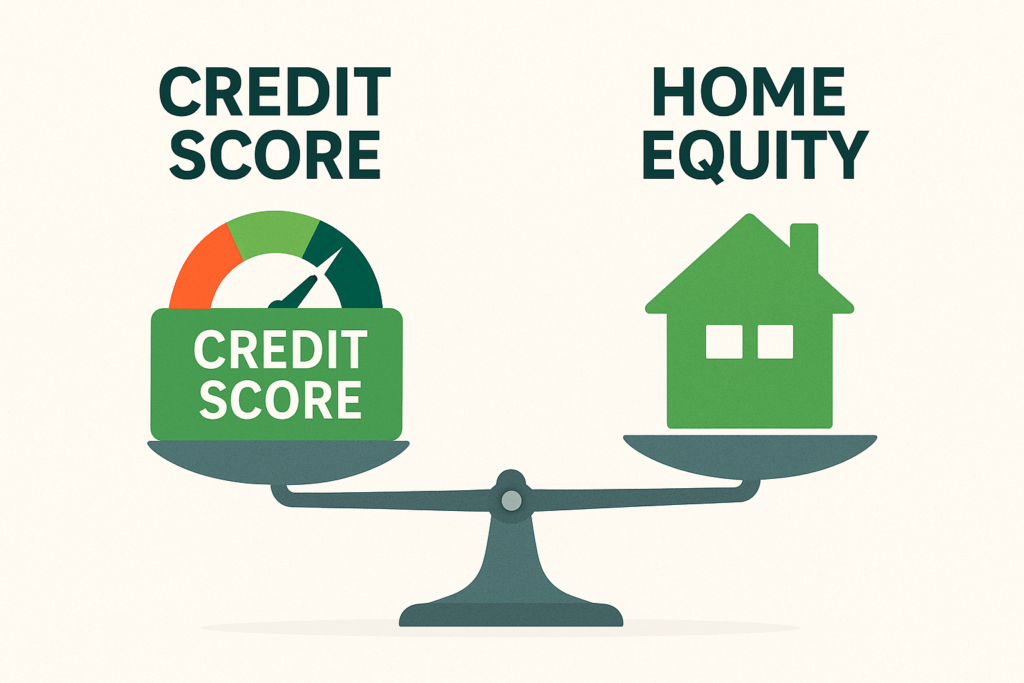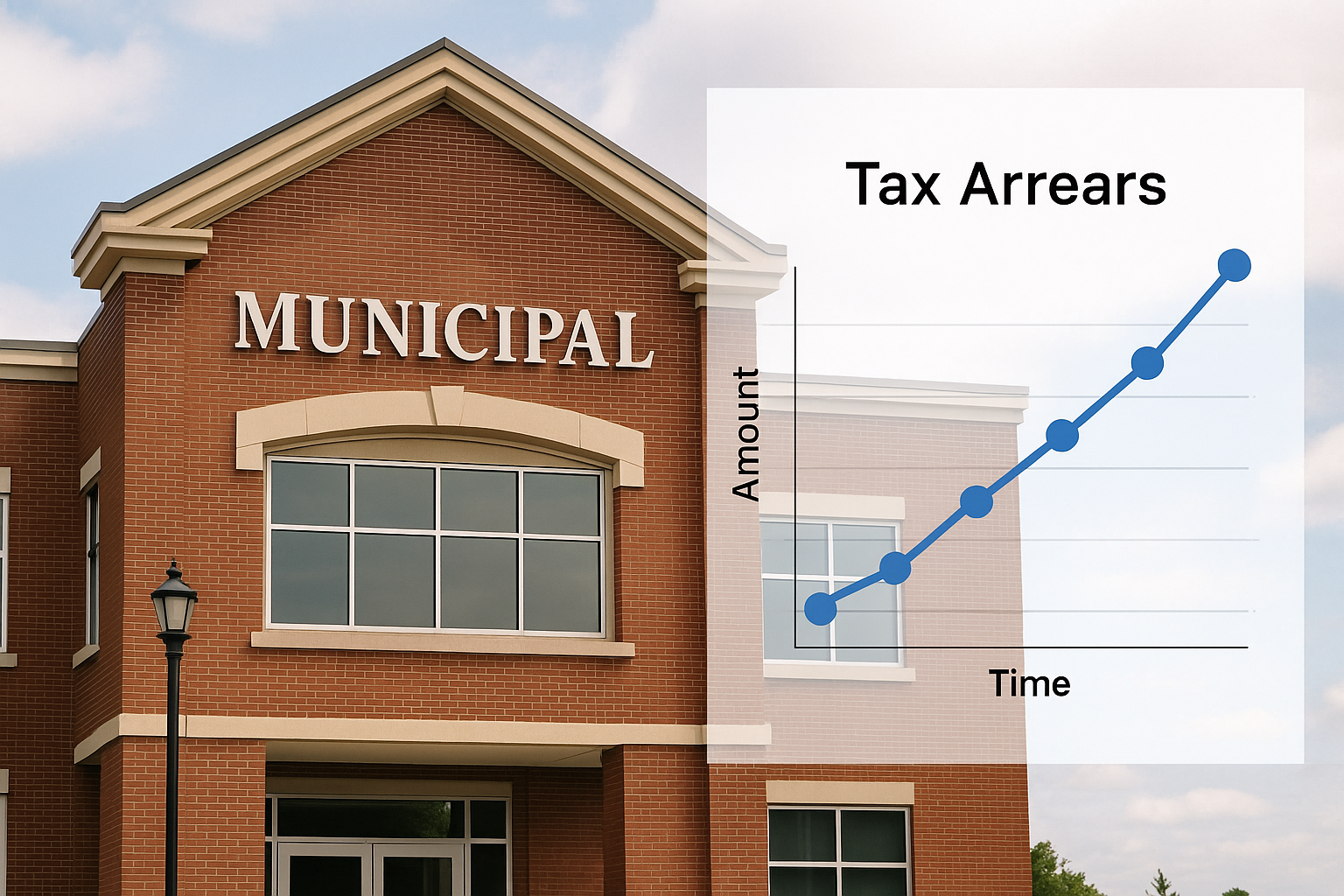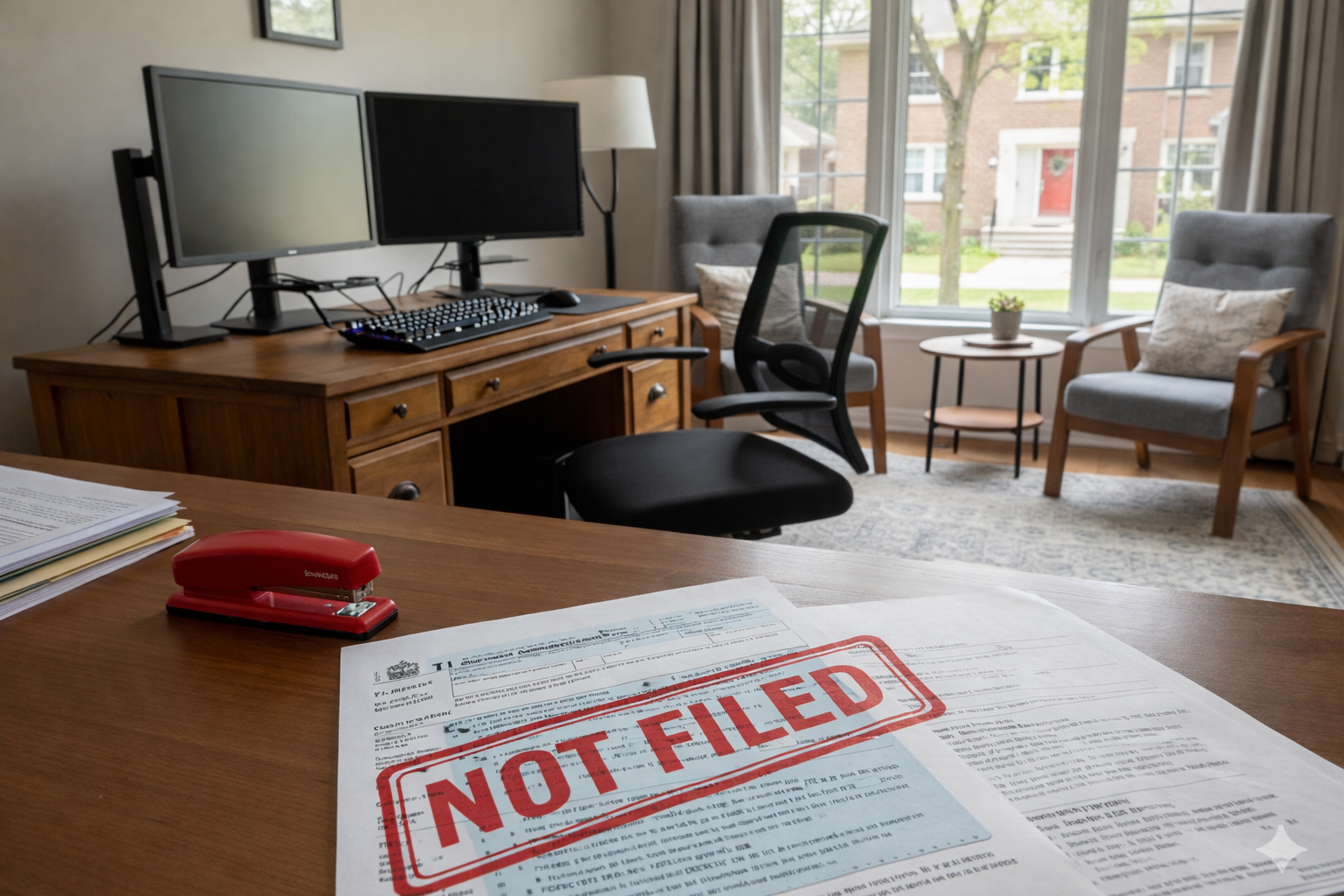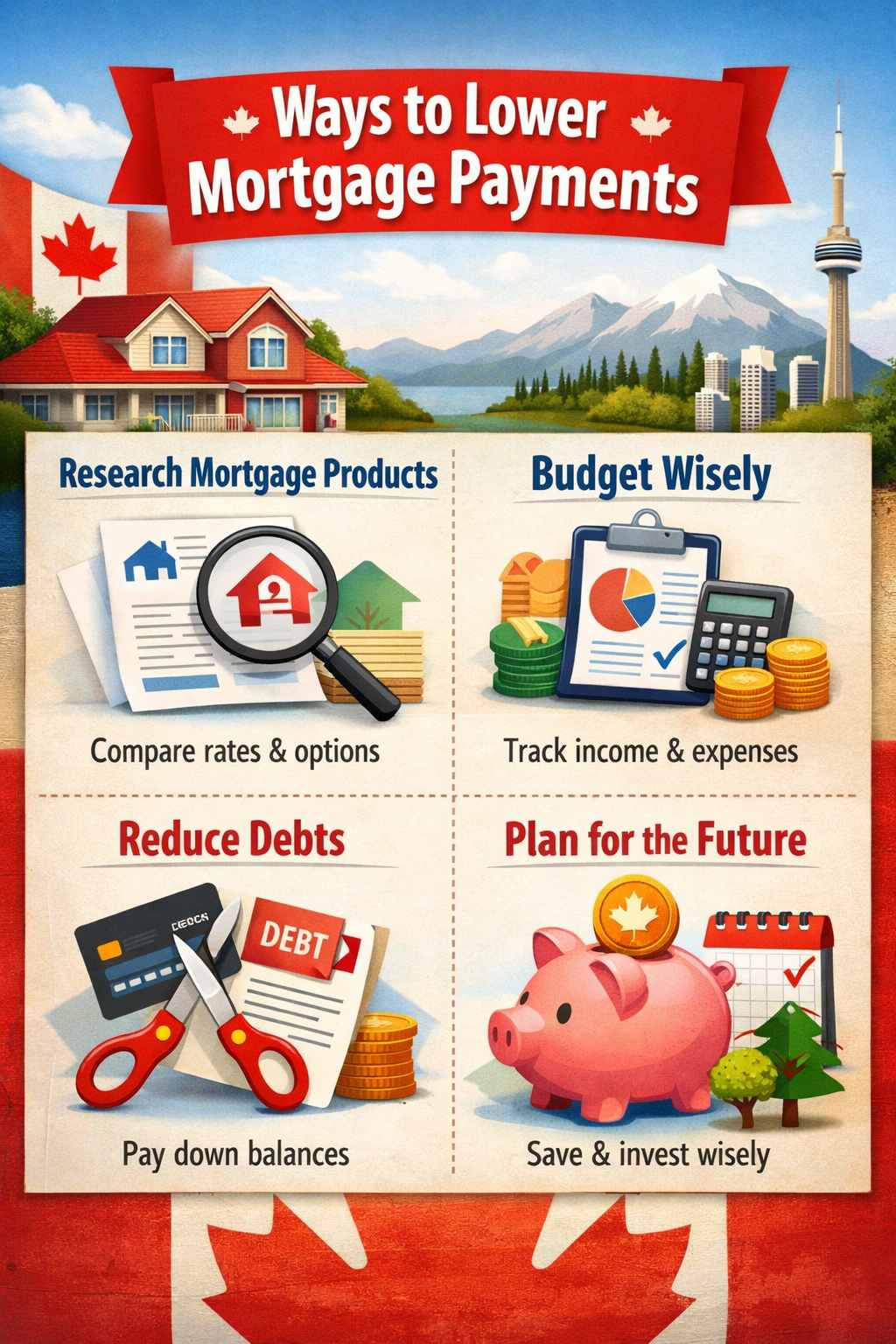If you’re falling behind on property taxes, you’re not alone, and it’s critical to act early. This guide walks you through what delinquent property taxes mean in 2025, the risk path (tax liens, tax sales, potential loss of property), and a full menu of solutions (municipal payment plans, home equity, refinancing, second mortgages, debt relief). Even with bad credit, reduced income, or job loss, there are strategic options to regain control. Follow the step-by-step checklist and explore tailored paths in the FAQ section.
Table of Contents
ToggleWhat Are Delinquent Property Taxes?
When your property taxes are not paid by their due date, you incur arrears, that is, overdue taxes. Once those arrears escalate past a certain threshold or time frame (often a calendar year or more), they become delinquent property taxes. At that point, municipalities may initiate collection measures, including tax liens, registering tax arrears certificates, or eventually a tax sale.
Difference Between Arrears vs. Delinquent
-
Arrears = unpaid taxes that are overdue (recent or within the grace period)
-
Delinquent = taxes that are in a more advanced, negative state and are eligible for stronger enforcement
It’s important to note: penalties and interest often begin accruing as soon as you miss a payment, pushing the balance higher even while you’re in arrears.
Municipal Processes & Penalties in Canada
Municipalities in Canada follow local legislation regarding unpaid taxes. For example:
-
In British Columbia, delinquent taxes are those still unpaid after December 31 of the current tax year, and the municipality may start collection actions. Government of British Columbia
-
Municipal interest/penalty rates on delinquent taxes are often set (e.g. “prime + 3%”) under provincial laws. Open Government Canada
-
A tax sale is a public auction of homes with unpaid taxes (often 2–3 years overdue). sorbaralaw.com+3Government of British Columbia+3City of Vancouver+3
Key takeaway: the longer the delay, the more aggressive the municipality’s legal options become.
Why Homeowners Fall Behind
Many homeowners who fall into delinquent property taxes do so because of financial disruption.
Common triggers include:
-
Reduced income or job loss
-
Unexpected medical bills or emergencies
-
Sudden major repair or expense
-
Poor budgeting / multiple debt obligations
-
Underestimating property tax increases
Once taxes begin to slip, financial stress compounds. Missed payments can harm your credit score, making it harder to refinance or borrow. A tax lien or certificate on your title can block you from selling or renewing mortgages.
Important to note: even a small cash flow interruption can cascade into property tax arrears if not addressed quickly.
Consequences of Letting It Linger
Ignoring delinquent property taxes is risky.
Here’s how the risk escalates:
Municipal Lien & Registration
When your taxes remain in arrears, the municipality can register a tax lien or tax arrears certificate on your property title — essentially giving them a legal claim over your home until the debt is satisfied. In Ontario, for example, if taxes are two or more calendar years in arrears, the city can register a lien on your title. City of Hamilton
Once a lien is registered, you typically lose the ability to sell or refinance cleanly. The lien must be cleared first.
Redemption & Tax Sale / Foreclosure
After a lien is registered, a redemption period often begins (commonly 1 year in many provinces). During that time, you may still pay the arrears (plus costs, interest) and redeem the property, cancelling the certificate.
Read: Purchase & Sold Under Tax Sale.
If you fail to redeem within that time, the municipality may publish the property for sale, commonly by tender or auction, to recover the delinquent property taxes, interest, penalties, and administrative costs. Public Tender Resource.
In some cities (e.g. Winnipeg), tax sale is triggered after three years of unpaid taxes. assessment.winnipeg.ca
Once the sale is executed, your home title can transfer to the purchaser, and you may lose all equitable rights. In regions like Vancouver, property owners or registered charge holders have one year to redeem after a tax sale. City of Vancouver.
Real-World Canadian Examples
-
In Vancouver, properties with three years of unpaid taxes are auctioned, and owners have one year to redeem. City of Vancouver
-
In Ontario, after a tax arrears certificate, a public tender may follow according to Municipal Act rules.
-
In British Columbia, a tax sale is held annually, offering properties with two years of delinquent taxes. Government of British Columbia
Common mistake: waiting until legal notices arrive. At that point, your options shrink drastically.
How to Get Help / Solutions
Even when facing delinquent property taxes, there are multiple potential paths to resolve the debt. The best solution depends on your financial situation, equity in the home, credit profile, and how far along the enforcement process is.
| Option | Pros | Cons / Risks | Best For |
|---|---|---|---|
| Municipal Payment Plan | No new debt, keeps taxes current | Requires approval; penalties may continue | Homeowners with steady income and moderate arrears |
| Home Equity Loan | One lump sum to clear delinquent property taxes | Adds new debt, fixed payments required | Those with significant home equity |
| Home Equity Line of Credit (HELOC) | Flexible borrowing as needed | Variable interest rate, credit-based | Owners who want ongoing access to funds |
| Second Mortgage | Access to equity, even with bad credit | Higher rates, shorter terms | Homeowners with reduced income or poor credit |
| Refinance (Cash-Out) | Lower interest rate potential, single payment | Reset mortgage term, qualification rules | Those with good credit and strong equity |
| Debt Consolidation / Consumer Proposal | Simplifies multiple debts | Credit impact doesn’t erase taxes directly | Homeowners are overwhelmed by the overall debt load |
These options don’t directly erase property tax debt held by municipalities, but they may free up cash flow or provide legal breathing room.
Step-by-Step Guide: How to Tackle Delinquent Property Taxes
Follow this practical checklist to get back on track:
1️⃣ Request a Property Tax Statement
Ask your municipality for a complete arrears statement that shows penalties, interest, and the total balance due.
2️⃣ Explore Payment Plans or Deferral Programs
Many municipalities offer hardship payment arrangements or temporary tax deferrals, especially for seniors or low-income households.
3️⃣ Check for Property Tax Credits
Programs like the Ontario Energy and Property Tax Credit (OEPTC) can offset some costs. Also, ask about local municipal relief programs.
4️⃣ Review Your Home Equity
Order an appraisal or contact a broker to estimate how much equity remains after your existing mortgage.
5️⃣ Compare Borrowing Options
Evaluate home equity loans, HELOCs, second mortgages, or refinancing as possible ways to clear delinquent property taxes.
6️⃣ Consult a Mortgage Broker—Even With Bad Credit
A broker can help find equity-based solutions that traditional lenders may overlook.
7️⃣ Consider Debt Relief or Legal Options
If debts are overwhelming, talk to a licensed insolvency trustee about a consumer proposal or structured repayment plan.
8️⃣ Act Before Legal Notices Arrive
Once the tax lien or sale notice is issued, your options narrow fast; early action is key.
💡 Key Takeaway: The sooner you act, the more solutions you’ll have. Don’t wait for a tax sale notice; take control now and protect your home equity.
Common Myths & Mistakes to Avoid
-
Myth: “I can’t do anything once a lien is registered.”
False – you may still redeem or negotiate before the sale. -
Mistake: hoping municipal staff will forget or show leniency.
Municipalities are under pressure to collect, so delay rarely helps. -
Myth: “I’ll lose everything if I miss one payment.”
Not necessarily, many stages exist before the sale. -
Mistake: borrowing too aggressively without budgeting for repayment.
New debt that you can’t service can worsen your financial position. -
Myth: “All municipalities follow the same rules.”
No, tax sale rules, redemption periods, and penalty rates vary by province and municipality.

When You Have Bad Credit or Reduced Income
If your credit score is weak or your income is low, many standard borrowing routes may not be available. But that doesn’t mean you’re without recourse.
Lending in Risk Cases
Some lenders specialize in lending to borrowers with credit challenges or those seeking equity loans or mortgages. They tend to carry higher interest rates or stricter conditions (e.g. large down payment or equity buffer). Your property equity is a strong mitigating factor.
Creative Strategies / Co-signer / Guarantor
-
Use a co-signer or guarantor with stronger credit to back your loan.
-
Partition into multiple smaller loans (e.g. partial HELOC + payment plan).
-
Approach nonprofit credit counsellors or municipal hardship offices to mediate.
If foreclosure or tax sale is imminent and borrowing isn’t feasible, a consumer proposal or bankruptcy may be a consideration, but always seek professional guidance first.
Frequently Asked Questions
Q: How long before delinquent property taxes result in a tax sale in Canada?
A: The timeline varies significantly by province and municipality. In Ontario, municipalities can register a tax lien after two years of non-payment and typically wait one additional year before initiating a tax sale. Alberta follows a three-year process before tax recovery proceedings. British Columbia has shorter timelines in some municipalities, potentially resulting in a tax sale within 18-24 months. The key takeaway is that you have time to address delinquent property taxes, but waiting increases costs and risks. Contact your municipal tax office immediately to understand your specific timeline and avoid tax sale proceedings.
Q: Can I get help with delinquent property taxes if I have bad credit?
A: Yes, multiple solutions exist even with bad credit. Private lenders specialize in equity-based financing and approve homeowners with credit scores as low as 500, focusing on your home equity rather than your credit history. You can also negotiate payment plans directly with your municipality, which requires no credit check. Second mortgage lenders and alternative financing companies offer solutions when traditional banks decline applications. While bad credit may result in higher interest rates, these options prevent tax sale and protect your home. The cost of private financing is typically much less than losing your property to a tax sale.
Q: Will delinquent property taxes affect my credit score?
A: Delinquent property taxes don’t appear directly on your credit report initially. However, they indirectly affect your credit in several ways. If your municipality registers a tax lien on your property, this becomes public record and may be discovered during credit applications. If you miss mortgage payments because you’re prioritizing property taxes, those missed payments will damage your credit score significantly. Some municipalities may send tax arrears to collection agencies, which do report to credit bureaus. The best approach is to address property tax arrears before they cascade into other financial problems that directly impact your credit.
Q: What happens to my mortgage if I have delinquent property taxes?
A: Most mortgages contain clauses requiring property taxes to be current. Your mortgage lender may discover delinquent property taxes through annual title searches or tax lien registrations. Many lenders will pay the property taxes themselves and add the amount to your mortgage balance, often triggering higher interest rates or fees. In severe cases, persistent tax delinquency could trigger mortgage acceleration clauses, requiring full repayment. Some lenders may initiate foreclosure proceedings if delinquent property taxes aren’t resolved. This is why addressing property tax arrears immediately protects both your home and your mortgage status.
Q: Are there government programs to help with delinquent property taxes in Canada?
A: Yes, several provincial programs assist homeowners with property taxes. Ontario offers the Low-Income Seniors and Low-Income Persons with Disabilities Property Tax Deferral Program. British Columbia provides the Property Tax Deferment Program for seniors, persons with disabilities, and families with children. Saskatchewan offers property tax exemptions for seniors and disabled homeowners. Manitoba provides the Education Property Tax Credit. Additionally, most municipalities offer flexible payment arrangements regardless of income level. These programs can defer taxes until the home is sold or provide annual credits, reducing the tax burden. Contact your provincial tax office and municipal tax department to learn about specific programs available in your area.
Q: Can a second mortgage or home equity line of credit help with delinquent property taxes?
A: Absolutely. A home equity line of credit (HELOC) or second mortgage is one of the most effective solutions for delinquent property taxes. HELOCs allow you to borrow up to 65% of your home value minus your existing mortgage, providing funds to clear tax arrears. Second mortgages don’t require breaking your existing mortgage, avoiding penalty fees. Both options typically offer lower interest rates than the 15-18% annual rate charged on delinquent property taxes. Private lenders approve these applications even with credit challenges, focusing on your home equity. The key is acting before tax sale proceedings begin, as registered tax liens complicate refinancing options.
Q: What should I do first if I’ve fallen behind on property taxes?
A: Contact your municipal tax office immediately as your first step. Explain your situation honestly and request payment arrangement options. Most municipalities offer 6-24 month payment plans with minimal documentation. While making this contact, review your finances to determine if you can realistically afford the payment plan or need additional financing. If your income has permanently decreased due to job loss or reduced income, explore provincial tax deferral programs simultaneously. For those who can’t manage municipal payment plans, contact mortgage brokers specializing in equity-based solutions to clear arrears completely. Taking action within the first 90 days of falling into arrears provides the most options and prevents escalation to tax lien registration.
Conclusion
Delinquent property taxes create serious consequences, but Canadian homeowners have numerous solutions available at every stage of the process. Whether you’re one payment behind or facing tax sale proceedings, options exist to protect your home. Municipal payment plans provide the simplest solution for most homeowners, requiring no credit check and offering flexible terms. Provincial tax deferral programs help eligible seniors and disabled homeowners defer taxes entirely.
When immediate funds are needed, home equity line of credit options, refinancing, second mortgages, and private lending provide access to capital even with bad credit. The key to successfully resolving property tax arrears is taking immediate action. Every day of delay adds interest charges and moves you closer to tax lien registration or tax sale.
Don’t let embarrassment or fear prevent you from seeking help with delinquent property taxes. Municipalities, lenders, and credit counsellors work with homeowners in your situation daily. They understand that job loss, reduced income, medical emergencies, and financial hardship can happen to anyone. What matters is your willingness to address the problem proactively.
If you’re struggling with delinquent property taxes and need financing solutions beyond municipal payment plans, contact experienced mortgage professionals who specialize in helping homeowners preserve their properties. With proper guidance and appropriate financing, you can clear property tax arrears, remove tax liens, and implement preventative strategies, ensuring you never face this stressful situation again.
- Shocking Reasons Your Mortgage Company Could Cancel or Call Your Mortgage - January 24, 2026
- Costly and Important Facts About a Writ of Execution: What It Means and How to Clear It - January 22, 2026
- 7 Great Ways to Reduce Your Mortgage Payments Without Sacrificing Your Goals - January 19, 2026






